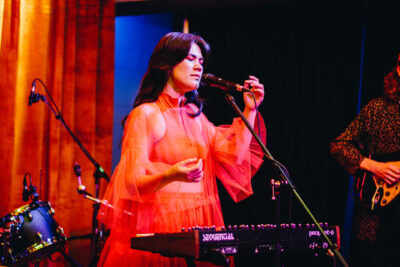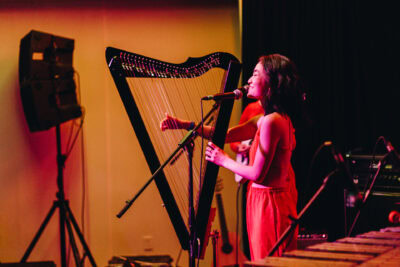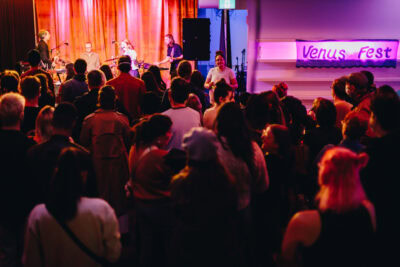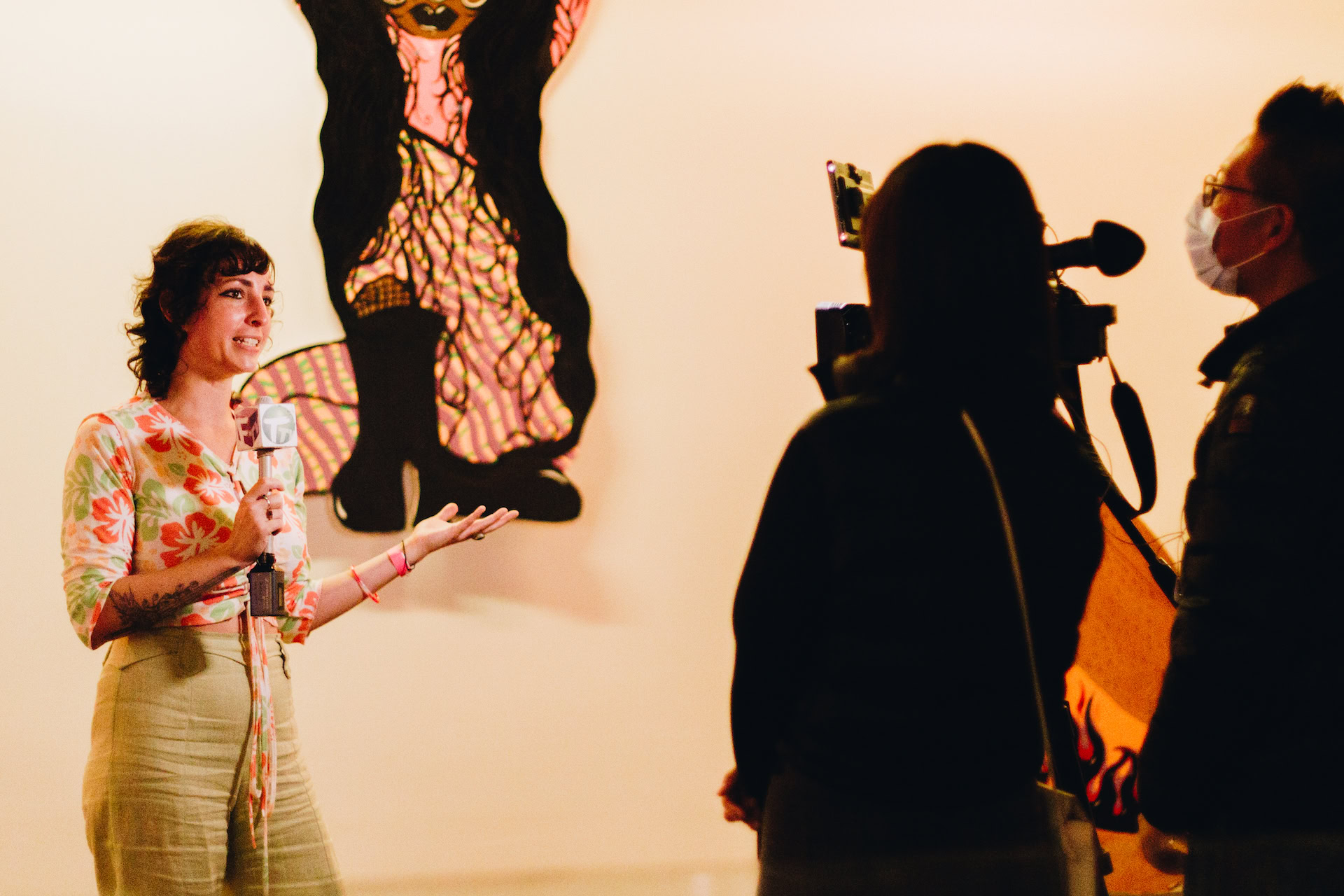Since its launch in 2017, Venus Fest has played a critical role in reshaping Canada’s music industry, providing a safer space for women and non-binary artists while also giving them the platform and spotlight they deserve. Led by Artistic Director Aerin Fogel, Venus Fest has helped establish emerging artists like Charlotte Cornfield, Lido Pimienta and Haviah Mighty (who won best rap album at the Junos in 2022—the first woman to win it). Of course, Venus Fest has also added immeasurable fun and excitement to Toronto’s arts and culture scene. While the festival will continue to evolve, Fogel recently announced her departure with a heartfelt message that we deeply respect.
“I am so unspeakably proud of what the festival has become and the hope and love it offers the world. Being its mom has been the centre of my life these past 7 years,” writes Fogel. “I have always said Venus Fest came to me like a being, a person entering my life, full of its own complex beauty and love and twists and chaos. I know in my heart I’m no longer the right steward for this particular being, and I offer it up for collective care. I am happy to have been a catalyst for something that has grown into a stable, lasting vision.”
We’re thankful for Fogel’s leadership and connected with her to look back on the evolution of Venus Fest. From unforgettable nights to thoughts on Canada’s ever-changing music industries, there’s much to be learned from Fogel’s wisdom and perspective.

Orchidae performs at Venus Fest 2022. Photo: Green Yang.
Can you take us back to when you first hatched the plan for Venus Fest. What did those early days look like, feel like?
In early 2017 there was a lot of conversation about the need for greater representation in music of women and non-binary artists. I had left the music industry for a few years and decided I wanted to return to it with some kind of positive, proactive contribution. There was a lot of energy and excitement around something that felt very needed and beautiful in the music community.
What was the Venus Fest mission from the get go, and is it still the same today?
The original mission was to support and make space for more women and non-binary artists and arts workers in music. That is still at the heart of the festival but it has evolved to encompass many beautiful different identities and experiences that are often underrepresented in the world. I like to think the festival has grown alongside the growth and expansion of the very individuals it represents.
What are you most proud of?
Taking the risk to start the festival. It was life-changing for myself and many others. And it’s so easy to let self-doubt and the many unknowns overshadow the inspirations and callings we have.
When you compare Toronto’s music scene in 2017 to today, what are the biggest shifts you can identify?
I really feel that there has been progress made in the music scene’s gender equity, although of course it’s still a process. In some ways the conversation has just grown broader, deeper, and more complex, as many people learn more and seek to create positive change. The pandemic has made some challenges even harder, and many bigger orgs are still not interested in equity work, but there is also real growth that’s taken place.

Tiger Balme performs at Venus Fest 2022. Photo: Green Yang.
What still needs to happen?
I believe this comes down to a question of getting people to care about things they don’t yet care about. And that’s a deeper challenge of getting them to acknowledge discomfort, regret, uncertainty, and other difficult but relatable experiences. What would our world look like if everyone genuinely cared about each other, even when that meant hard choices? A lot different, I’m sure.
What are 3 of the most vivid memories that you think will always stay with you?
In our first year in 2017 I remember finally having a moment to sit down backstage. Grouper and Madame Gandhi were around and found out I was an astrologer and started sharing their birth charts with me – it was a wonderful conversation. I mostly also remember our setup and teardown days, because they had this special energy with our incredible team of being in some kind of beautiful bubble together that felt timeless. And the feeling of Venus Fest 2022 is going to stay with me forever because I knew in my heart it was my last festival as the AD and it allowed me to go in with a fully open heart, especially as our first festival back in-person after 3 years.

Hannah Georgas performs at Venus Fest 2022. Photo by Green Yang.
This is a hard one, but what do you think is the biggest lesson you’ve learned as the Artistic Director of Venus Fest?
Nothing is perfect, and nothing is ever going to come out exactly as I see it in my mind’s eye. I learned that Venus Fest is a living being, just like myself and all the people involved with it, which means it functions with its own unique personality and twists and turns. Learning to be part of that was a rollercoaster, but an incredibly valuable life lesson I’m grateful for.
Venus Fest is currently accepting applications for the position of Artistic Director. Head to their website for more info.



 Follow Us On Instagram
Follow Us On Instagram
